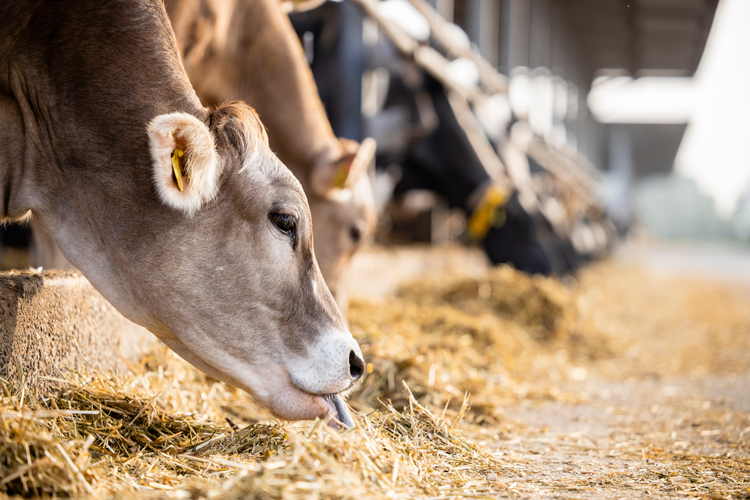Various functions of energy in dairy cows

Energy metabolism plays a crucial role in the physiology of dairy cows, impacting various physiological functions, milk production, and overall health. Efficient conversion of dietary nutrients into usable energy is essential to meet the high energy demands of lactating dairy cows. Here are some key points highlighting the importance of energy metabolism in dairy cows:
1. **Milk Production:** Lactating dairy cows require significant energy to support milk synthesis. Energy is essential for the secretion of milk components such as lactose, fat, and protein. Optimal energy metabolism ensures optimal milk production, which directly affects the economic viability of dairy farming. The mammary gland of a cow needs 72 grams of glucose to produce 1 kg (2.2 lbs.) of milk. For a cow producing 100 lbs. of milk per day, she requires 3,270 kg of glucose daily.
2. **Body Maintenance and Growth:** Energy is vital for maintaining basic bodily functions, organ function, and overall health. It also supports tissue growth, particularly in growing heifers and replacement animals.
3. **Reproduction:** Energy availability is closely linked to reproductive performance in dairy cows. Adequate energy reserves are crucial for proper estrous cycle regulation, conception, and successful pregnancy. Insufficient energy can disrupt the reproductive cycle and reduce fertility.
4. **Immune Function:** A well-functioning immune system is essential for the health of dairy cows. Energy metabolism contributes to the production of immune cells and antibodies, helping cows resist diseases and infections. Cows with compromised energy balance are more susceptible to health issues.
5. **Fat Mobilization:** During periods of negative energy balance, cows may mobilize body fat reserves to meet energy demands. Prolonged negative energy balance can lead to health issues like ketosis and fatty liver syndrome.
6. **Feed Efficiency:** Efficient energy metabolism is closely linked to feed efficiency. Maximizing the conversion of dietary nutrients into energy helps optimize feed resources, reduce production costs, and lessen environmental impact.
7. **Nutrient Partitioning:** Proper energy metabolism influences nutrient partitioning toward milk production rather than fat deposition. This is crucial for maintaining body condition and ensuring energy is directed towards productive purposes.
Understanding the dynamics of energy metabolism allows dairy farmers to implement effective nutritional management strategies, especially during critical periods like the transition from dry to lactating. Proper energy balance management through nutrition and husbandry practices is essential for maintaining a profitable and sustainable dairy operation.
In conclusion, energy metabolism is a cornerstone of dairy cow physiology, impacting milk production, reproductive performance, immune function, and overall well-being. Effective management of energy balance is crucial for the success of dairy farming operations.

